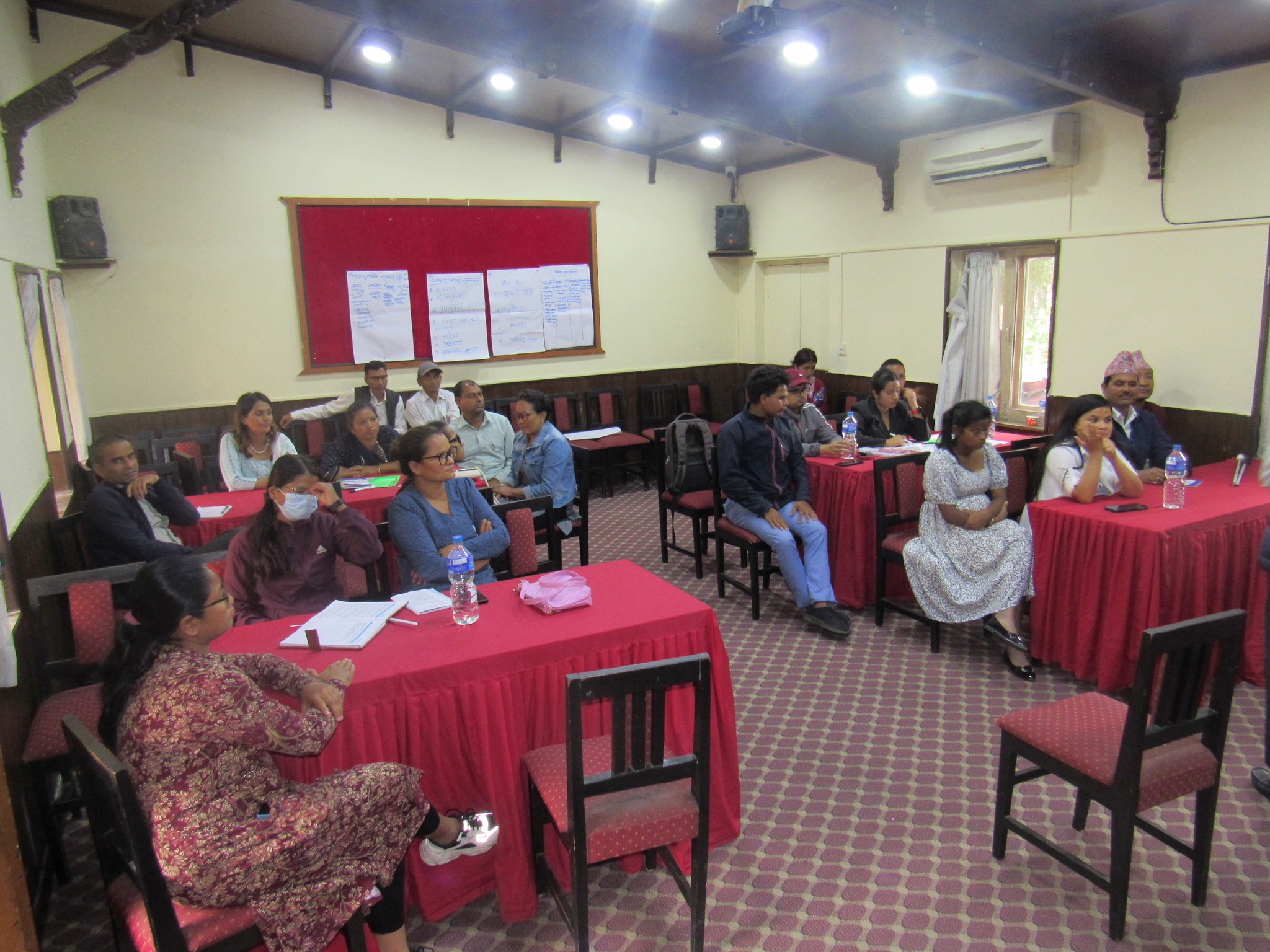2-Day Capacity building training for potential electoral candidates with disabilities
Published on: October 31, 2022

On the 25th and 26th of September, training on capacity building and political as well as legislative intervening leadership was provided to the likelier candidates with disabilities. Many of the attendees were shortlisted for proportionate candidacy from their place to the party and the remaining were the regularly active and passionate political and disability advocates. The two-day event was organized with the support of the Canadian Fund for Local Initiatives, (CFLI) under the project of ensuring the electoral candidacy of persons including women and other marginalized sectors with disabilities. The two pieces of training were conducted simultaneously for the fifty selected participants attending the orientation, with twenty-five in each program. Both the training was organized in a parallel manner at Hotel Hardik, Bagbazaar, Kathmandu.
The sessions in the training highlighted the art and characteristics of influential leaders, drawing from the stories of prominent leaders, urged the participants to develop the art and skills to raise the issues and voices of disability once they get elected to the parliament, and also reminded the participants to not only be limited within disability sectors but to incorporate the public agendas in the legislature afterward. Similarly, the participants were also educated and alerted on the proper and balanced exercise of power within the democratic practice when the power is obtained. Finally, through the interactive and activity sessions, the review of pre-existing leadership along with analysis of failures and successes of those leaders, the training concluded with the development of short declaration papers from the groups; a manifesto comprising the vision, plans, and strategies of the future leaders. The sessions were led by Shudarson Subedi, a long-experienced leader in the disability movement, disability legal expert and the then president of the National Federation of Disabled Nepal, Mukunda Hari Dahal, a legal expert and experienced advocate for disability rights and inclusion, and Mr. Jagat Nepal, the lecturer of Political science and media person.
The participants from all over the country provided positive remarks during the feedback session. One of the attendees shared that her perception of the idea of great leaders changed practically, from the learnings of challenges and struggles of the influential leaders. Similarly, many of the participants appreciated the approach to not limit the possible representatives at the parliament within the territory of disability, and rather urge them to raise their voices and work for the public and their issues and interests as well. Some participants also had their experiences and skills built in developing the declaration paper with proper plans and strategies and expected that the practices would turn out to be effective when they reach the policy-making level in real. In the countries like Nepal, where the practices of misuse or even abuse of authority and political power is found many times, the session on the right utilization of the power in the democratic system would be a lesson to learn for all the potential leaders and people’s representatives as expressed by one of the attendees, who was also shortlisted for the proportionate candidacy.
The sessions were interactive, with the facilitators engaging the participants to share their experiences as leaders or in the mission of becoming leaders, formed different groups to carry out activities to find the specific and effective issues in the decision-making level, also conducted mock sessions to practice the delivery of speeches identifying and effectively expressing the issues of public and of disability sectors. Both of the training concluded on a positive note to empower the potential/future leaders with a disability, especially in the political domain.
